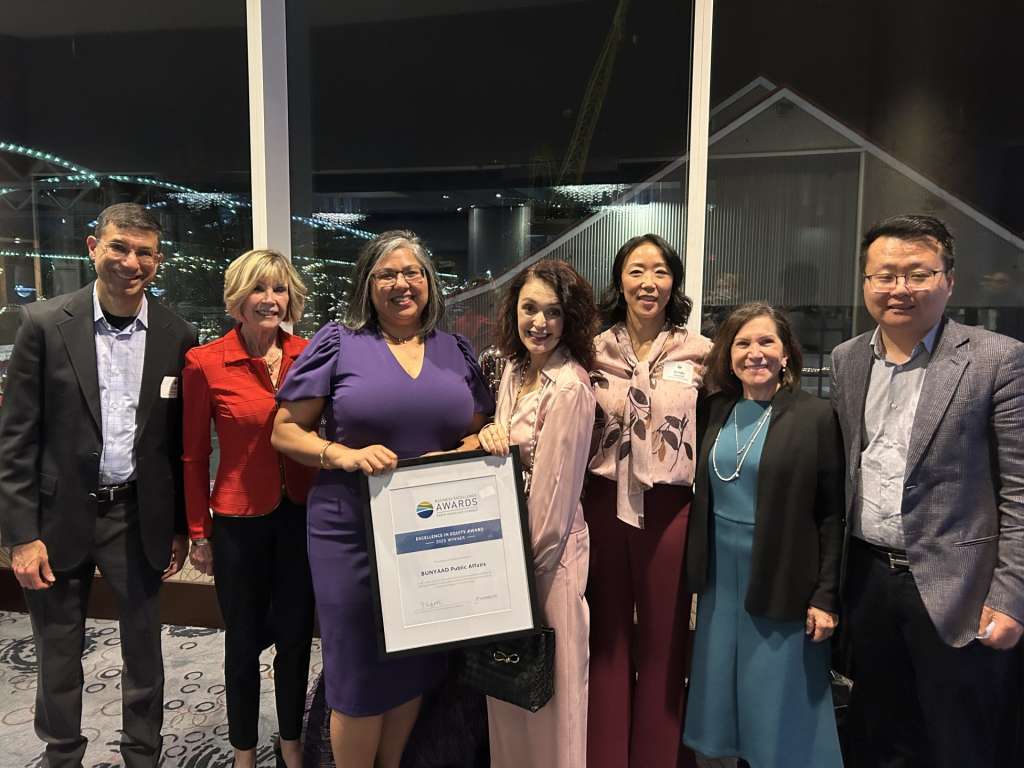Impact North Shore is a for-purpose, social impact organization that is dedicated to offering comprehensive and innovative services for im/migrants, and to strengthening inclusion and equity. We are located on the stolen, traditional, and ancestral territories of the Squamish and Tsleil-Waututh.
Impact North Shore upholds the fundamental rights, value and dignity of all children, youth, adults, seniors, families and community members, honouring their Indigeneity, race, colour, ancestry, place of origin, faith, religion, heritage, culture, language, health, physical and mental ability, family status, im/migration and legal status, sexual orientation, gender, gender identity, gender expression, and socio-economic background.
As an im/migrant settlement organization, we are positioned within a colonial framework and systems of oppression. The long and continued history of injustices against Indigenous peoples and racialized settlers has resulted in societal and political barriers, and mistreatment. This has led to unequal health, social, educational, economic, housing, and family outcomes over generations. We recognize the complex and intersecting relationships between im/migration, racism, colonialism, and Indigenous sovereignty; and believe that understanding our role within this context is the first step in creating transformative change.
We believe that transformation requires accountability, collaboration and the centering of diverse voices across all aspects of our work. We strive to do so by committing to anti-racism and to the work of Reconciliation as called for by the Truth and Reconciliation Commission of Canada.
Anti-Racism Statement
Racism is rooted in and upholds white supremacy and colonialism in multiple social, cultural, political, and economic forms that work together to exclude, violate, and harm racialized individuals, groups, and communities.
We believe anti-racism is a deliberate, ongoing commitment to actively challenge and dismantle racism in all its forms – whether individual, interpersonal, institutional, or structural. Our approach is rooted in an intersectional lens, recognizing that systems of oppression are interconnected and create compounding negative effects. We strive toward racial equity where opportunity, resources, and successes are no longer predicted or limited by the process of racialization.
Impact North Shore commits to being an anti-racist organization. As part of our ongoing journey toward transformative change, we will continue to take progressive steps and commit to the following actions:
- We will strengthen internal capacity by fostering a culture of anti-racist learning and practice. Our organizational policies, procedures, and operations will be rooted in equity and actively work against racism.
- We will build community capacity by speaking out against racism and developing response protocols grounded in the values of justice, equity, and accountability.
- We will center racialized voices by prioritizing the lived experiences and leadership of racialized im/migrants and Indigenous communities in the design and implementation of initiatives.
- We will advance anti-racism education by creating learning opportunities that deepen understanding of racism and its effects and contribute to the development of healthy and equitable communities.
These commitments reflect our belief that meaningful change begins with intentional action – within our organization and in partnership with the communities we serve.
Reconciliation Statement
Impact North Shore acknowledges that through the imposition of colonial law, Canada denied Indigenous peoples their sovereignty and systems of governance. Policies such as the Indian Act, the reserve system, residential schools, and the sixties scoop resulted in genocide, trauma, and the loss of relationship to territory and culture. These colonial systems of violence, inequity, and injustice remain deeply embedded in Canadian laws, institutions, systems, and beliefs, and continue to harm Indigenous communities.
As an im/migrant settlement organization, we stand in the truth that Canada’s immigration and settlement systems are inherently connected with the displacement and genocide of Indigenous communities, and the seizure of their land. Indigenous communities are rightsholders and the original stewards of this land. This understanding is central to our approach to Reconciliation.
Impact North Shore commits to deepening our understanding of our role in upholding the principles of Indigenous sovereignty while learning about many distinct identities, cultures, histories, and lived experiences of First Nations, Métis, and Inuit communities.
To counter the effects of Canada’s oppressive history, Impact North Shore respectfully commits to the work and recommendations of The Truth and Reconciliation Commission of Canada’s Report, the Report of the National Inquiry into Missing & Murdered Indigenous Women and Girls as well as the United Nations Declaration on the Rights of Indigenous Peoples. We believe that Reconciliation and decolonization are ongoing and intentional practices that must center the leadership of First Nations, Metis, and Inuit peoples.
As part of our ongoing journey toward transformative change, we will continue to take progressive steps and commit to the following actions:
- We will build respectful relationships with First Nations communities that acknowledge and address the effects of past and present colonization.
- We will develop our capacity to embed practices of cultural safety across our work.
- We will learn about the effects of colonization, both historical and ongoing, and create meaningful spaces for understanding and reflection within our organization and work.
- We will center the voices of First Nations peoples in our Reconciliation work, ensuring their leadership and perspectives guide our efforts.
- We will learn, understand, and include the distinct identities, cultures, histories, and experiences of Indigenous peoples – including First Nations, Métis, and Inuit.
- We will strive to develop decolonial practices that are grounded in Indigenous worldviews, values, and ways of knowing.
- We will align our actions with the Calls to Action from the Truth and Reconciliation Commission of Canada’s Report and the Calls to Justice from the Final Report of the National Inquiry into Missing and Murdered Indigenous Women and Girls.


